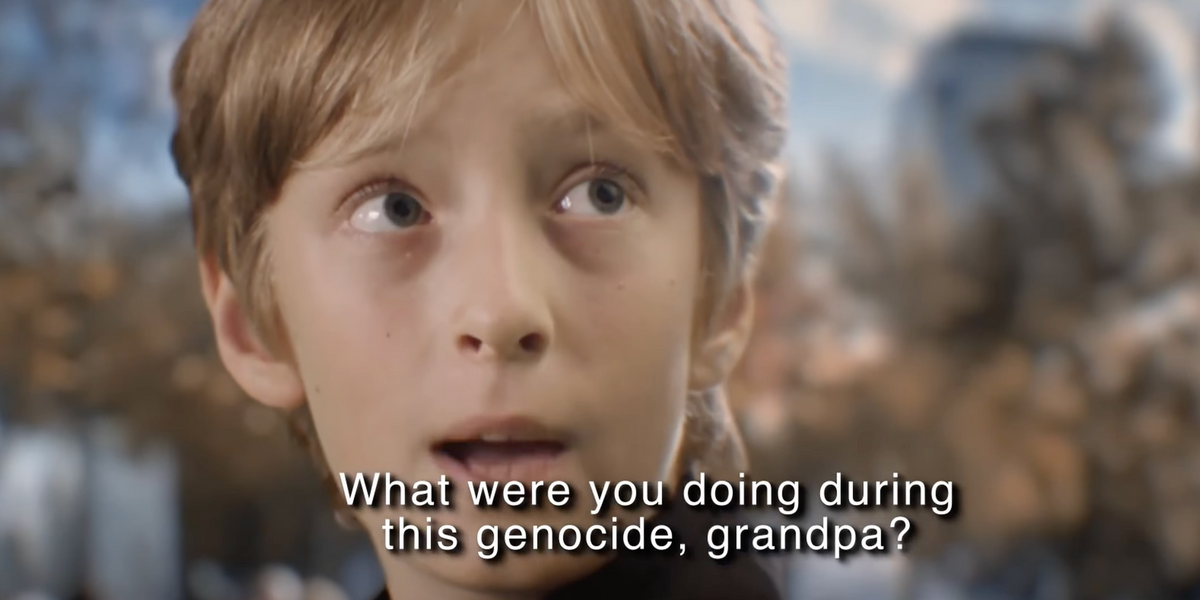the real question is what did you do to make it worse?
“Well, you see son, the perpetrators of that genocide were the victims of the largest genocide of the 20th Century, so nobody felt comfortable doing or saying anything.”
I’ve been thinking about this exact question recently.
My Austrian grandmother and her sister were working class teenagers during the war. They couldn’t realistically have done anything to stop the Nazis. They didn’t really do much to help but since they were seamstresses they secretly snuck the Jewish family in the building some sewing supplies. It wasn’t much and they stopped when they were told that someone had reported them to the Gestapo. Their experience during the war was dodging bombs and trying to find something to eat.
None of that matters. When I was a kid growing up in the US people regularly made Nazi jokes as soon as they found out about my heritage. Nobody was willing to entertain any ideas that maybe those civilians shouldn’t have been held accountable.
History judged all of Germany and Austria harshly. It judged the civilians harshly and it judged their descendants harshly.
https://news.un.org/en/story/2023/12/1144717
The world is watching.I really wish people would learn the difference between begging the question and raising the question.
In a day and age where the people are growing a part from they’re own language, your asking alot of them. I guess it literally doesn’t effect them much…
Grandson: What were you doing during the genocide?
Me: Probably making shitty memes about it.
I understand the frustration, but blaming individuals for a government’s actions, especially in 2024, feels misplaced. The reality is, many of us feel powerless to influence our own governments, let alone foreign policies, especially when it comes to complex international conflicts like the one in Gaza.
The U.S. government has entrenched interests and a long history of unconditional support for Israel, sustained by billions in taxpayer dollars. Despite widespread protests and public outcry, these policies seem nearly immune to change. It’s disheartening, but the truth is, most citizens have little say in how their tax money is used, especially on issues where both major political parties are largely aligned.
Voting every four years feels inadequate when the system itself limits real choices and perpetuates the status quo. Yes, we can protest, but even that has its limits. The mechanisms of government and foreign policy are beyond our direct control, leaving many feeling like we’re just along for the ride—forced to watch, speak out, and hope for change that rarely comes.
So while we share the outrage, it’s unrealistic to act as if we, as ordinary people, have the power to stop a war machine fueled by vested interests. The whole system feels like it’s rigged to keep us eating the consequences, whether we like it or not.






